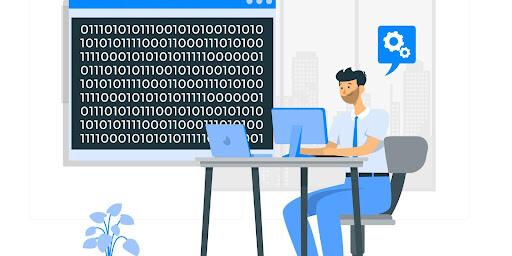 1-800-805-5783
1-800-805-5783 
Do you ever think you’re playing hide-and-seek with your code? Your application crashes, and you spend hours scouring your screen for that elusive issue. Nothing appears to work no matter what you do.
Let us suggest some debugging tools to help you write code more effectively and make identifying and eliminating bugs easier.
The process of debugging software is crucial. It assists you with finding and fixing errors in your code, assuring the efficient operation of your application. Using debugging tools can significantly enhance your code in your product engineering efforts.
However, debugging may be difficult, especially when working with complicated software projects. You must have the appropriate debugging tools to complete the task quickly.
Finding the source of an issue in a code base and fixing it is called debugging.
Typically, we brainstorm all potential causes before testing each one (beginning with the most likely ones) to identify the true root of the problem. Once we have corrected it, we ensure it won’t happen again.
There isn’t a magic bullet for bugs. Searching online, recording our code, and comparing our logic to what is happening are typically required.
We’ll discuss the value of debugging, typical bug kinds, and the most widely used debugging tools on the market.

Software development requires extensive debugging, which is crucial for several reasons. First, it assists you in locating and correcting programming mistakes, which may be logical, runtime, or syntax-related. If you don’t debug it first, you risk publishing software with flaws that could cause your program to crash, yield unexpected results, or jeopardize data security.
Debugging also aids in code optimization by highlighting problem areas. By studying your code when debugging, you can find performance bottlenecks, unnecessary code, or places where you can modify algorithms to increase application speed and responsiveness.
We use information when working as developers. We arrange it, transfer it, modify it, transmit it to different locations, and then receive it once more.
We frequently work with information, though not directly. At least not in the way users imagine it; knowledge isn’t “actually” present in computers.
The computer only contains electric pulses, which are abstracted into 1s and 0s and then returned to the information we are working with.
We utilize programming languages to communicate with and use computers. These give us representations of the information we manage and various degrees of abstraction from the computer’s tasks.
When programming, it’s pretty simple to lose track of the actual operation quickly the computer is carrying out or the data we are operating upon in a given line of code because it may be such an abstract activity. From then on, it’s simple to train the computer incorrectly and miss our goal.
According to an inside joke in software development, developers often spend 5 minutes developing code and 5 hours attempting to comprehend why something doesn’t work as it should.
No matter how competent we become as developers, we will still have to spend countless hours fixing bugs in our code; thus, we should improve our debugging skills.
Finally, debugging enhances the quality of your code, which helps you create better software. Debugging enables you to develop better code by educating you on typical errors and excellent practices. You can use the new debugging methods, tools, and procedures you learn to hone your coding abilities.
Now that you know the value of debugging and the many errors you could meet, let’s examine some of the most well-liked debugging tools.
Integrated Development Environments (IDEs) are well-liked debugging tools that give developers access to an integrated debugging environment. Breakpoints, watch variables, and call stacks are just a few of the debugging tools available in IDEs to assist you in successfully analyzing and troubleshooting your code. Xcode, Eclipse, and Visual Studio are a few well-known IDEs.
Developers can track how their code is being executed using debuggers, which are standalone tools. They include sophisticated features like breakpoints, memory analysis, and call tracing. Various programming languages, including C++, Java, and Python, have debuggers available.
Logging libraries are helpful debugging tools that allow programmers to record messages while their code runs. Developers can now examine the output to find problems and enhance performance. Log4j, Logback, and NLog are well-known logging libraries that are performance profilers.
Developers can locate performance bottlenecks in their code using performance profilers. They examine how code is executed to pinpoint the time-consuming procedures and give developers the tools to optimize their code. Some popular performance profilers include VisualVM, YourKit, and Intel VTune.

Software development must include debugging, and using the appropriate tools is crucial to enhancing effectiveness. By using debugging tools like IDEs, debuggers, logging libraries, and performance profilers, you can find and fix problems in your code more quickly, optimize your code, and advance your coding abilities.